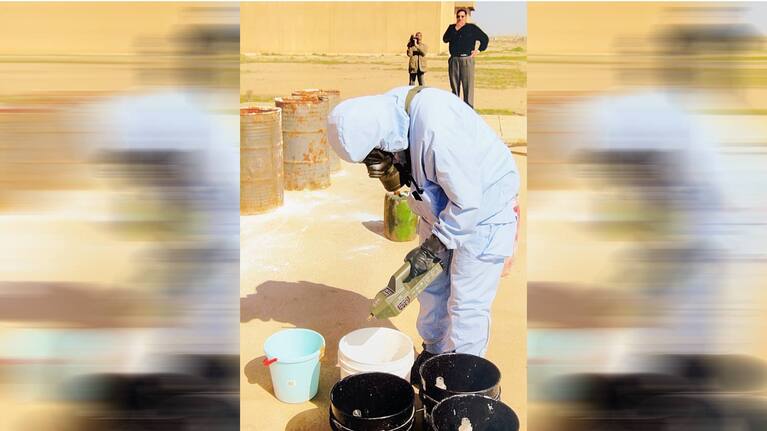A former United Nations weapons inspector who lives in New Zealand says he hopes lessons have been learnt from the Iraq War.
This week marks the 20th anniversary of the start of the war, which many say was unjustified.
Steve Allinson visited Iraq with the UN three times, the last was in 2002-2003 and he left just before it began.
He says that last trip was high pressure and highly political.
"With the benefit of hindsight it's pretty obvious that the Americans and the British were going to go in, they wanted regime change," Allinson said.
"So there was no evidence that we could ever present that could change that."

The United States led a coalition invasion, without United Nations authority, on the premise that Iraq had weapons of mass destruction.
Allinson said about two months before the war began, it was clear to him there were no such weapons.
"We were hitting all the top priority sites. We were hitting those by early January and going we still haven't found anything.
"There's no traces, we can't find any evidence that they've restarted any programmes all we can see is all their equipment is all degraded."
He said it was difficult seeing what the public were told was so different to what was happening on the ground.
"One of the hardest parts is seeing all of the news reports on CNN, there are weapons of mass destruction there, the UN weapons inspectors can't find them but they're there, and we're going, we can't find them because they're not here," he said.
New Zealand didn't join the war but did help with the rebuild.
The effect of the conflict was soon felt across the region.

International Relations Expert Alexander Gillespie said wars almost always have unintended consequences, and Iraq was no exception.
"The military campaign itself was quick and effective. But it then opened up a void in the Middle East which turned into a place that Al-Qaeda could grow, Islamic State could grow and the whole war on terror really exploded into something completely unforeseeable," he said.
Gillespie said the war also undermined international order with long-term fallout, using the war in Ukraine as an example.
"It showed that super powers can act unlawfully and sometimes not bear the consequences for what they do and that creates precedence for other countries to follow it."
Most now agree that Iraq's weapons of mass destruction didn't exist, Allinson saying he's happy that the truth is known after two decades.
"I used to want to have a sorry from people, certain top politicians... but that's never coming," he said.


















SHARE ME